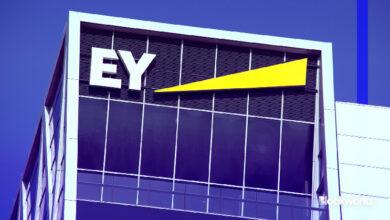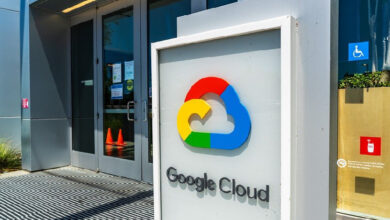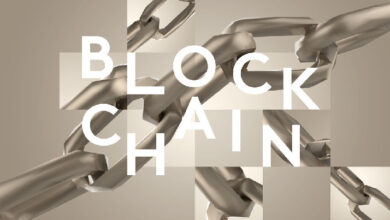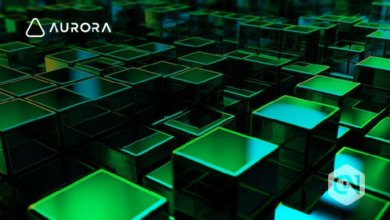Why Major Auction Houses Need Decentralized Technology

Blockchain
Historically, many auction houses have built their brands on being exclusive places where the wealthy buy and sell fine art, jewelry, and other luxury items. But today, auction houses are looking for new ways to engage a wider, more diverse, and younger audience of potential buyers.
That’s why many of them are turning to Web3 technology. For instance, Christie’s 3.0, which the company describes as an “on-chain auction platform dedicated to exceptional digital art,” was launched in 2021 to support the sale of art in the form of non-fungible tokens, or NFTs.
But NFTs aren’t the only thing that auction houses can sell with Web3 tech – nor should they be. By offering a wider range of blockchain-based auction experiences, auction houses can offer a broader range of products to more people – and when auctions are conducted in a truly transparent, decentralized manner, these houses can build a greater level of trust with potential buyers.
How Have Auction Houses Used Web3 Tech in the Past?
To understand more about how major houses can benefit from decentralization, it’s important to know a little bit about how auction houses and Web3 tech have intersected in the past.
When NFTs made their grand entrance into the mainstream art world in early 2021, they were selling like hotcakes (and very expensive hotcakes, at that). Digital pieces by digital artists like Beeple and celebrities like Grimes were selling for tens of millions of dollars, mostly on NFT-specific platforms like OpenSea.
This is when major houses began to move toward the Web3 space with the launch of NFT platforms of their own. But although these platforms were selling Web3 goods that existed on decentralized public blockchains, they weren’t necessarily decentralized themselves.
What is Decentralized Auction Technology?
In an auction setting, decentralization doesn’t just mean that the house can sell blockchain-based assets. In fact, decentralized auction houses can sell all the goods that traditional houses sell – and more.
The basic principle of decentralization is that no single entity maintains control over a system. Traditionally, auction houses operate based on hierarchical management processes where individuals make decisions about what is sold, who sells it, and who it can be sold to. These decisions are made behind closed doors, without input from the larger community.
If an auction house were to become decentralized, though, no single entity would maintain control over it. Rather, all of the house’s operations would be carried out in a transparent manner, with the input from the community. Further, any technological infrastructure that makes up the house must always be publicly viewable (and auditable).
Decentralization Leads to More Transparency and Security for Buyers and Sellers
While it may seem counterintuitive at first, this level of transparency actually makes this infrastructure more secure.
When a piece of software is open source, its community of users can check for errors and make suggestions to improve it. And in an auction house setting, a similar level of transparency could also help to support safer and more secure buying and selling practices – for instance, blockchain can help buyers track ownership and provenance of artwork, making it easier for buyers to make informed decisions. And beyond the sale of art, decentralized tech could enable a house’s community of buyers to see where products are sourced from more clearly.
Decentralization could also shine light on the decision processes behind how baseline prices are set, and so on – ultimately leading to greater trust in the relationship between auction houses and buyers. And importantly, it doesn’t matter what’s being sold: fine art, real estate, NFTs, wine, jewelry, and more – houses (and their communities) can benefit from the transparency that decentralization has to offer across the board.
Casting a Wider Net
Decentralization can also help auction houses attract younger and more tech-savvy buyers.
Beyond the added level of trust that decentralization provides, younger buyers may be more likely to participate in auctions conducted on blockchain-based platforms – particularly if they have a pre-existing interest in blockchain and cryptocurrencies.
Buyers who don’t have this pre-existing interest may still be attracted by the potential wider range of assets that decentralized houses can sell in a trustworthy and transparent manner online. For instance, buyers seeking valuable artwork may opt to see the work in person to ensure that they’re getting what they’re paying for. But with decentralized tech providing a trustworthy record of sale and ownership, buyers may feel more comfortable making larger purchases on the web.
Decentralized Tech Can Streamline Operations for Auction Houses
Web3 technology can also enable auction houses to streamline their operations and reduce transaction costs. Traditional auction houses rely on third-party banks and payment providers to make sure the flow of funds moves according to plan. But by using smart contracts, auction houses can automate the bidding and payment processes. This reduces the need for intermediaries, making the process more efficient.
Blockchain tech can also help reduce the risk of fraud and ensure that payments are made quickly and securely. Because blockchain records cannot be falsified or tampered with, settling payments with crypto creates an environment where payments cannot be fabricated or manipulated. The same goes for blockchain-based ownership records – they cannot be altered without the consent of the entire network on which they exist.
Decentralization Can Greatly Benefit Auction Houses Today – And In the Future
It’s been said that “software is eating the world” and that “decentralization is eating software.”
There’s a reason that decentralized technology is increasingly being adopted across various industry verticals. And just like banks, real estate markets, financial services, supply chain, and other sectors are increasingly entering Web3, auction houses can benefit significantly from this technology.
–
Jack Lu is the CEO of Bounce Finance, a decentralized auction tech platform that provides complete solutions for launching and conducting a wide range of auction types with seamless on-chain settlements.





